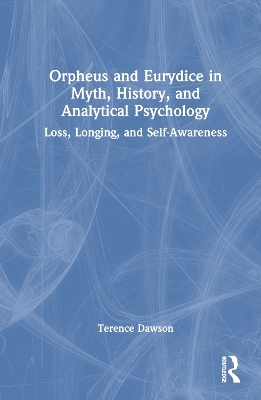
Orpheus and Eurydice in Myth, History, and Analytical Psychology
Routledge (Verlag)
978-1-032-85731-2 (ISBN)
- Noch nicht erschienen (ca. März 2025)
- Versandkostenfrei innerhalb Deutschlands
- Auch auf Rechnung
- Verfügbarkeit in der Filiale vor Ort prüfen
- Artikel merken
Dawson’s study of the mythic imagination traces how these concerns unfold in poems, plays, novels, films, paintings, operas, ballets, and sculptures. It charts a history of responses to the experience of loss and longing and the need to grow in self-awareness. And it illustrates how responses to this myth anticipate many of the claims associated with analytical psychology.
This book will be of interest to analysts, scholars, and students working with Jung’s ideas, and to all those interested in adaptations of myth and the implications they harbour.
Terence Dawson is an independent scholar, following a career teaching English and European literature at universities in Brazil, the UK, and Singapore.
Introduction Part 1: Orpheus, or Impossible Longing 1. The Myth of Orpheus and Eurydice as Moral Philosophy: Virgil’s Epyllion 2. The Myth of Orpheus and Eurydice as Psychological Process: Ovid’s ‘Song of Orpheus’ 3. The Myth of Orpheus and Eurydice, Classical Philosophy, and Christian Allegory: Late Antiquity and the Middle Ages 4. The Myth of Orpheus and Eurydice and Love: The Renaissance and Early Baroque 5. The Myth of Orpheus and Eurydice and Social and Personal Concerns: The Late Baroque and the Age of Sensibility 6. Romantic Identification with Orpheus: The Nineteenth Century Part 2: Eurydice, or Unbearable Loss 7. Orpheus and Eurydice, Dissociative Tendencies, and Self-Transformation: Early Twentieth-Century Modernism 8. Orpheus and Eurydice, Dysfunctional Times, and the Need to Testify: The Second World War 9. Orpheus as Embodiment of the Creative Impulse: The 1950s 10. Orpheus Trapped Inside a Tragic Myth: 1960 to 1995 11. Orpheus and Eurydice, Confronting Reality and Self-Awareness: 1995 to 2020
| Erscheint lt. Verlag | 7.3.2025 |
|---|---|
| Zusatzinfo | 2 Line drawings, black and white; 2 Illustrations, black and white |
| Verlagsort | London |
| Sprache | englisch |
| Maße | 156 x 234 mm |
| Themenwelt | Geisteswissenschaften ► Psychologie ► Psychoanalyse / Tiefenpsychologie |
| Medizin / Pharmazie ► Medizinische Fachgebiete ► Psychiatrie / Psychotherapie | |
| ISBN-10 | 1-032-85731-5 / 1032857315 |
| ISBN-13 | 978-1-032-85731-2 / 9781032857312 |
| Zustand | Neuware |
| Haben Sie eine Frage zum Produkt? |
aus dem Bereich


